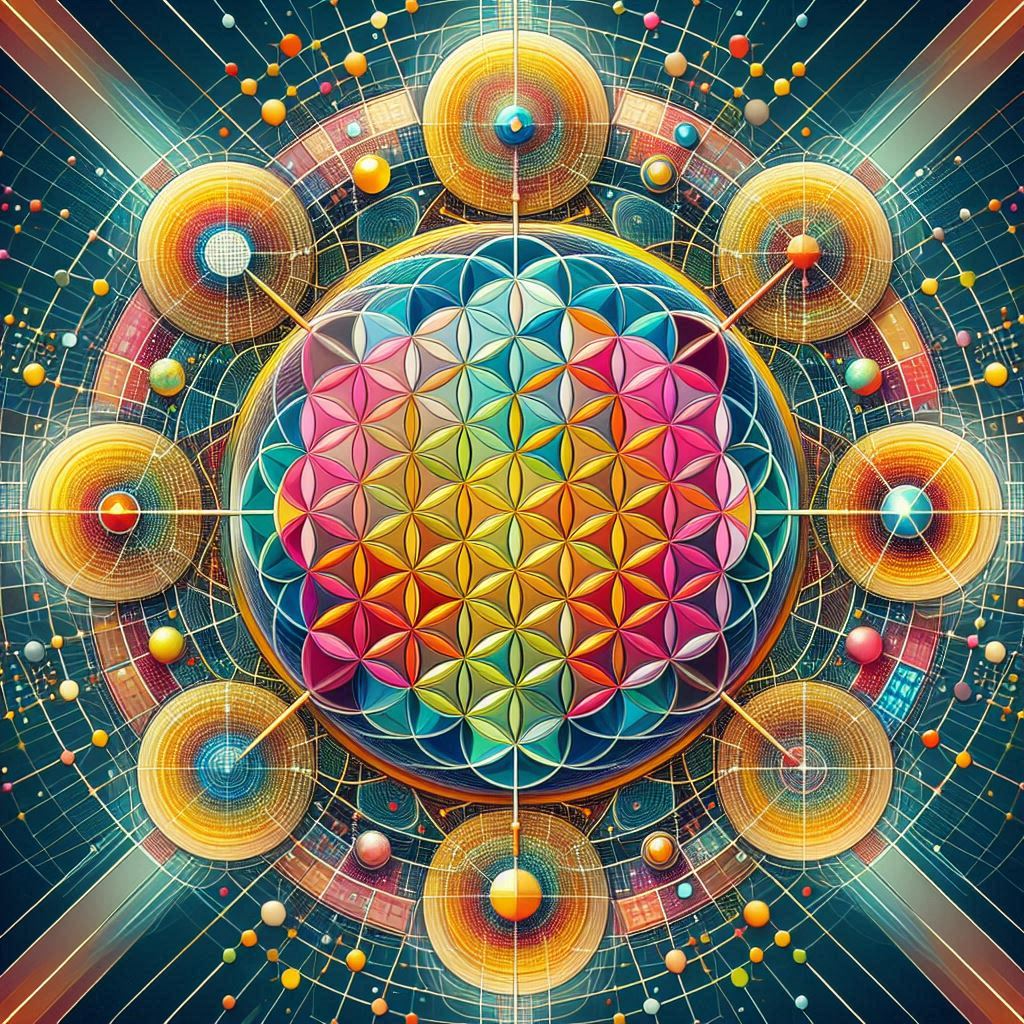Gaia Hypothesis: Honoring Earth & Co-creating Sustainability

Before diving in, please note: This post is for informational purposes only. If you’d like to know more about how we approach topics, feel free to check out our friendly Disclaimer Page.
Hey there, amazing readers! 🖐️ Just a quick note: yes, we know there are a lot of ads here. Trust us, we get it—it’s not the prettiest look, but they help us keep this blog alive and kicking. Those pesky little ads cover the costs of all the behind-the-scenes magic, from hosting and tech stuff to creating content we hope you’ll love.
We’re committed to delivering quality posts, and your support (even just sticking around despite the ads) means everything to us. So, bear with us, and thanks for helping us keep the good vibes rolling. Now, on to the fun stuff! 😉
TRANSLATE BUTTON AT THE END OF THE ARTICLE
The Gaia hypothesis is a scientific theory that James Lovelock put forth in the 1970s and contends that the Earth is a self-regulating system that preserves the conditions required for life.
However, communities that adhere to spiritual, metaphysical, new age, and mystical beliefs—which see the Earth as a living thing with consciousness and intelligence—have also embraced this theory.
In this article, we will explore the Gaia hypothesis from a new age viewpoint, looking at the various ways in which it has been interpreted and applied.
The Living Earth
One of the central tenets of the Gaia hypothesis from a spiritual perspective is the idea that the Earth is a living being, with its own consciousness and intelligence.
This idea is not new, and many indigenous cultures have long held this belief.
However, the Gaia hypothesis offers a scientific explanation for this concept, suggesting that the Earth is a complex system of interconnected processes that work together to maintain the conditions necessary for life.
This interconnectedness is seen as evidence of the Earth’s consciousness, as it suggests that the planet is aware of its own existence and is actively working to sustain itself.
This idea has been embraced by many spiritual traditions, including shamanism, paganism, and various New Age movements, which see the Earth as a divine being that deserves reverence and respect.
The Wisdom of Nature
Another important aspect of the Gaia hypothesis is the idea that nature is inherently wise and intelligent.
This idea stems from the belief that the Earth has evolved over millions of years, developing sophisticated systems of feedback and adaptation that allow it to maintain equilibrium and avoid catastrophic collapse.
This wisdom is seen as evidence of the Earth’s consciousness, as it suggests that the planet is able to make intelligent decisions and adapt to changing circumstances.
Many spiritual traditions that regard nature as a source of knowledge and inspiration have embraced this idea.
The Power of Intention
The Gaia hypothesis also contends that human intention can affect the Earth’s consciousness.
This idea is based on the belief that consciousness is a fundamental aspect of reality and that our thoughts and intentions can shape the world around us.
This means that we have the power to co-create the world we live in, and that our intentions can have a direct impact on the Earth’s consciousness.
Many spiritual traditions have embraced this idea because they view the power of intention as a tool for healing and transformation.
The Unity of All Things
The Gaia hypothesis also suggests that all things in the universe are interconnected and interdependent.
This idea is based on the belief that everything in the universe is made up of the same fundamental energy and that we are all part of a larger cosmic web of life.
We are all connected to each other and to the Earth, and our actions have a ripple effect that can be felt throughout the universe.
Many spiritual traditions, which see the unity of all things as a fundamental aspect of reality, have embraced this idea.
The Importance of Balance
Another important aspect of the Gaia hypothesis is the idea that balance is essential for life.
This idea stems from the belief that the Earth is a complex system of interdependent processes that must be in harmony in order to maintain equilibrium.
From a spiritual standpoint, this implies that we must make an effort to coexist in harmony with the environment and that a deep respect for the natural world should serve as our moral compass.
Many spiritual traditions, which view balance as a crucial component of spiritual growth and evolution, have embraced this idea.
The Call to Action
Finally, the Gaia hypothesis offers a call to action, urging us to take responsibility for our actions and work towards a more sustainable and harmonious relationship with the Earth.
This call to action is based on the belief that we are all interconnected and that our individual actions can have a profound impact on the planet and all its inhabitants.
We have a duty to live in accordance with our highest values and to work towards the betterment of all beings.
Many spiritual traditions, which regard activism and environmentalism as forms of spiritual practice, have embraced this idea.
The Sacredness of the Earth
One of the core themes of the Gaia hypothesis is the idea that the Earth is sacred.
This belief stems from the understanding that the Earth is not simply a physical object but a living, conscious being that deserves reverence and respect.
We must approach the Earth with humility and gratitude, recognizing that we are only one small part of a vast, interconnected web of life.
Explore the Path to Spirituality and Enlightenment – start here.
Many spiritual traditions, which view the natural world as a source of inspiration and spiritual nourishment and see the earth as a manifestation of the divine, have embraced this idea.
The Role of Ritual
Ritual is an important aspect of many spiritual traditions, and it plays a central role in the Gaia hypothesis.
Rituals are seen as a way of connecting with the earth and the natural world and honoring the sacredness of life.
From a spiritual viewpoint, rituals can take many different forms, including prayer, meditation, dance, and song.
These practices are designed to create a sense of connection and unity with the Earth, and to remind us of our place within the larger cosmic order.
The Healing Power of Nature
Many spiritual traditions view nature as a powerful source of healing and transformation.
This idea is based on the belief that the Earth is imbued with healing energy and that spending time in nature can help us connect with this energy and experience deep levels of healing and renewal.
Nature is seen as a teacher and a guide, offering us insights into the nature of reality and the workings of the universe.
By spending time in nature, we can learn to attune ourselves to the rhythms of the earth and develop a deeper sense of connection and harmony with the natural world.
The Evolutionary Impulse
The Gaia hypothesis from a spiritual perspective also suggests that the Earth is evolving and that humanity has a role to play in this process.
This idea is based on the belief that consciousness is a fundamental aspect of reality and that our thoughts and intentions can shape the course of evolution.
This means that we have the power to co-create the future we want to see, and that our actions can have a profound impact on the Earth and all its inhabitants.
By embracing our role as co-creators, we can work towards a more harmonious and sustainable relationship with the natural world, and contribute to the ongoing evolution of consciousness.
The Importance of Community
Finally, the Gaia hypothesis emphasizes the importance of community.
This idea is based on the belief that we are all interconnected, and that our individual actions have a ripple effect that can be felt throughout the world.
We must work together to create a more just and equitable world, and to build communities that are based on love, compassion, and mutual support.
By coming together in this way, we can create a world that is in harmony with the earth and with the highest values of our spiritual traditions.
Conclusion
In conclusion, the Gaia hypothesis offers a fascinating and multifaceted perspective on the relationship between humanity and the Earth.
From a spiritual and new age point of view, this theory offers insights into the nature of consciousness, the wisdom of nature, the power of intention, the unity of all things, the importance of balance, and the call to action.
By embracing the Gaia hypothesis from a spiritual perspective, we can develop a deeper appreciation for the Earth and all its inhabitants, and we can work towards a more sustainable and harmonious relationship with the natural world.
Ultimately, this can lead to greater spiritual growth and evolution, as we learn to live in harmony with the divine intelligence that animates all things.

The Enlightenment Journey is a remarkable collection of writings authored by a distinguished group of experts in the fields of spirituality, new age, and esoteric knowledge.
This anthology features a diverse assembly of well-experienced authors who bring their profound insights and credible perspectives to the forefront.
Each contributor possesses a wealth of knowledge and wisdom, making them authorities in their respective domains.
Together, they offer readers a transformative journey into the realms of spiritual growth, self-discovery, and esoteric enlightenment.
The Enlightenment Journey is a testament to the collective expertise of these luminaries, providing readers with a rich tapestry of ideas and information to illuminate their spiritual path.
Our Diverse Expertise 🌟
While our primary focus is on spirituality and esotericism, we are equally passionate about exploring a wide range of other topics and niches 🌍📚. Our experienced team is dedicated to delivering high-quality, informative content across various subjects ✨.
To ensure we provide the most accurate and valuable insights, we collaborate with trusted experts in their respective domains 🧑🏫👩🏫. This allows us to offer well-rounded perspectives and knowledge to our readers.
Our blog originally focused on spirituality and metaphysics, but we’ve since expanded to cover a wide range of niches. Don’t worry—we continue to publish a lot of articles on spirituality! Frequently visit our blog to explore our diverse content and stay tuned for more insightful reads.





